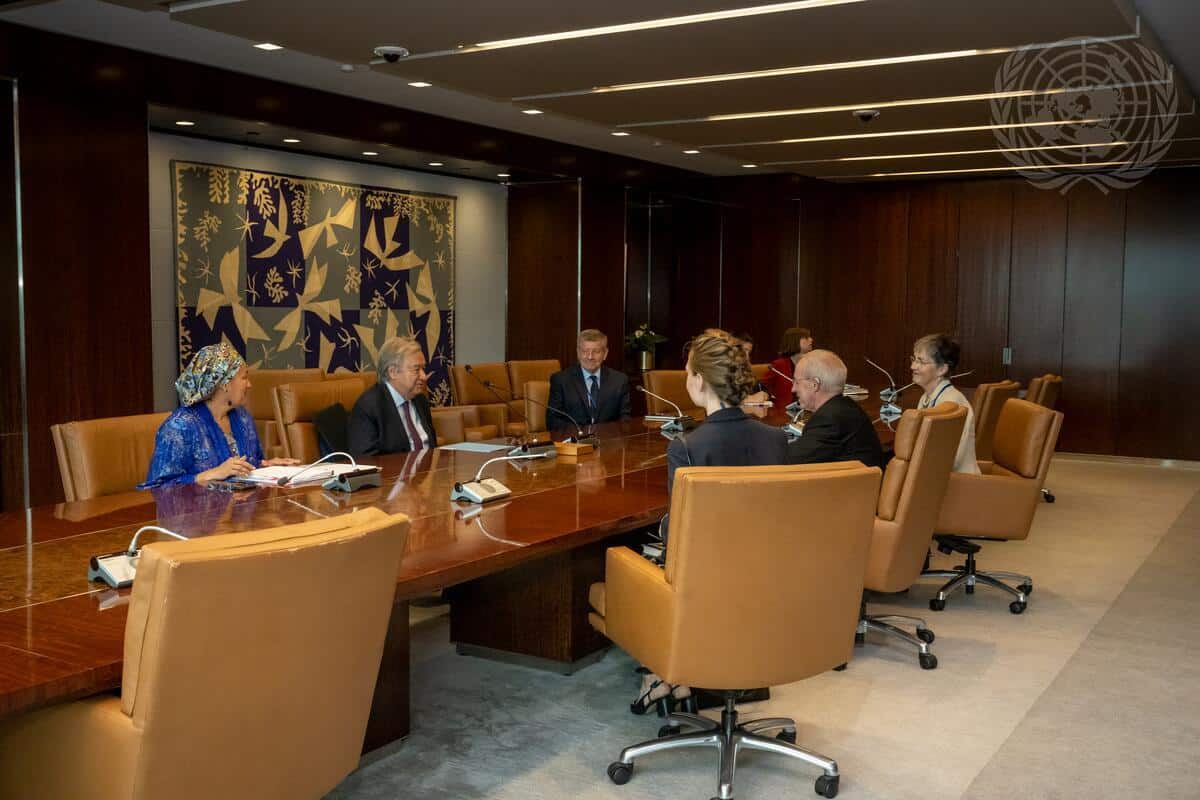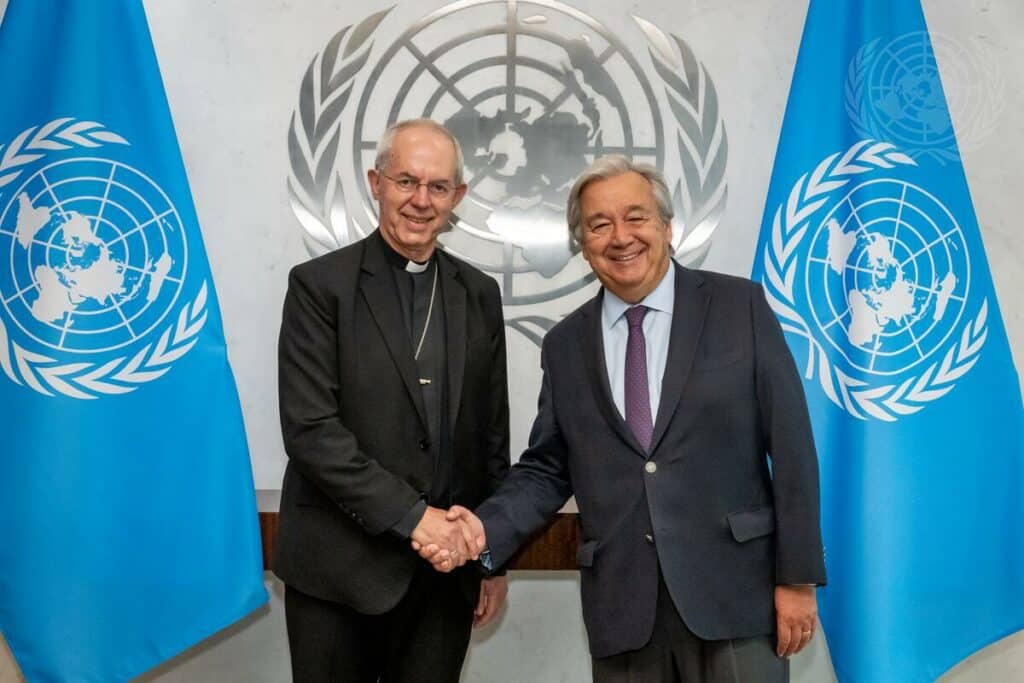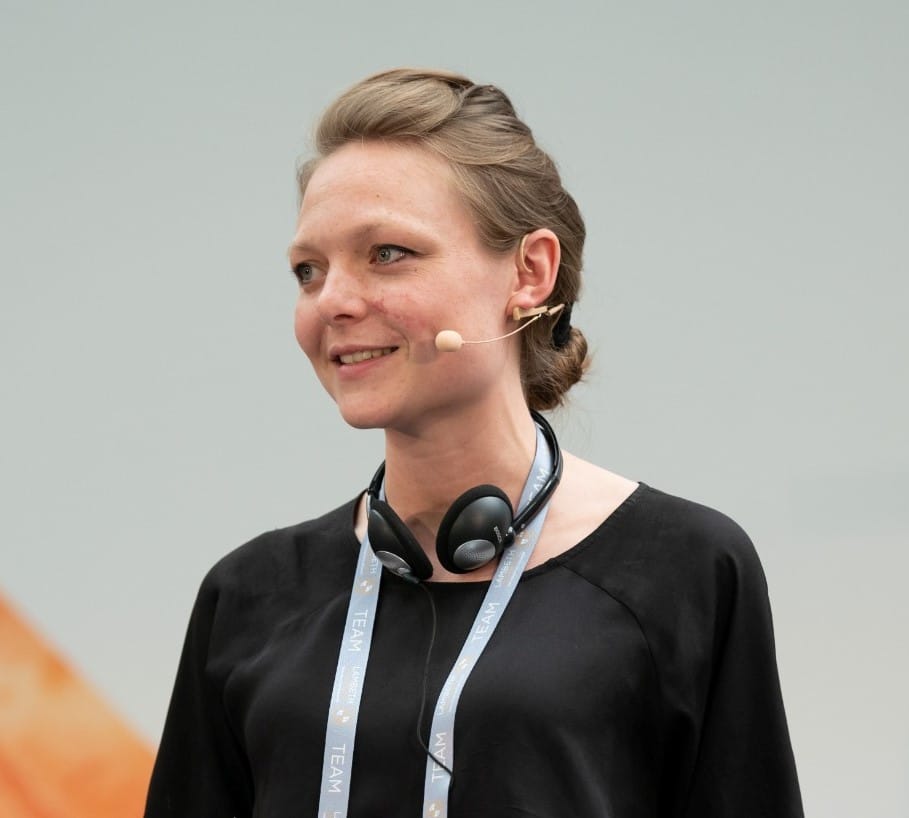
Martha Jarvis, the Permanent Representative of the Anglican Communion to the the UN, shares how the world of global peacemaking connects with our everyday lives.
(International Day of Peace 2023)
As someone interested in peace and reconciliation, how does your work at the UN most connect with those areas?
When you see leaders from all the countries of the world together in one room discussing one topic, you really see what an opportunity and challenge the UN has around peace and reconciliation. On one level, peace is at the heart of all it does – whether it’s working on specific conflicts or on climate change, health, development, even outer-space – the UN’s mandate is to find common ground for a peaceful future. But that’s a pretty big ask for anyone other than God, and inevitably there are imperfections and struggles in the UN’s approach. You can see political splits play out in some of the most mundane processes, and bureaucracy can delay just about anything. What I find most exciting is when the UN and the Church come together to overcome some of those issues. For example, we have paired UN and Anglican teams in four areas of conflict to strategise together about how to work through the Church’s trusted, national networks to bring transformation in communities and potentially national peace processes. The UN offers huge expertise in those discussions and the Church brings insights and relationships that are meaningful in-context, as well as hope when people are operating within the uncertainty of conflict.

Archbishop Justin recently spent time at the UN – were there any highlights from those meetings?
Archbishop Justin was at the UN to show how and why the Church is responding globally to issues around conflict, climate change and migration. He established closer relationships with the UN and countries represented there, where their efforts are complementary; he voiced a distinct perspective where injustice is at work (particularly around the treatment of migrants and the legacy of slavery); and offered support and encouragement where the UN is facing challenges. There were some real highlights for me. One was hearing how much value many countries and the UN place on insights given by churches affected by these issues – to hear Archbishop Justin and Caroline Welby amplify the voices of many we know in the midst of great struggles who carry on with courage and wisdom. Another was seeing how positively some new initiatives coming from the Church were received. And finally, it was excellent to see people respond to something different in Archbishop Justin – even if that was only because of the people he took time to greet around the edges of the meetings. It’s easy to forget the impact, or even the witness, of seemingly small, everyday encounters.
The theme of this year’s International Day of Peace is ‘Actions for Peace: Our Ambition for the #GlobalGoals’ and the UN highlight the importance of the Sustainable Development Goals. For people who aren’t familiar, what are these and how do they relate to peacemaking?
The Sustainable Development Goals were agreed by all nations as a vision of where they wanted to be in 15 years. The goals bring together poverty reduction, transformation of injustice and rebalancing our relationship with our planet. The theory is that one aspect of development shouldn’t be prioritised to the detriment of another. For example, development through trade and economic growth shouldn’t come at the expense of the planet. Or development of one country shouldn’t harm the development of another; one section of society shouldn’t flourish while another struggles. Ultimately the goals mean we should ‘leave no one behind’. In terms of peacemaking, there is one goal (Goal 16) that speaks directly to ‘peace, justice and strong institutions’. It acknowledges that peace is the foundation of so much development and agrees to enable everyone access to justice through inclusive institutions by 2030. But this goal is far off track, as are many others, and division is a major reason why. Conflict between nations has resulted in many more people living in poverty. Our natural tendency to prioritise ‘us’ over ‘them’ has meant uneven recovery from Covid. Inequality has prevented many countries from financing climate adaptation or investing in green energy. In response to this growing sense of global injustice, we need peacemakers in all areas of life, in every country to reimagine together and show that a different way is possible.
What do these goals have to do with our everyday lives as we try to answer the call to be peacemakers?
The goals can feel quite abstract and idealistic (prizes to anyone who can name all 17!) But there is real everyday beauty in them. At their heart, the SDGs are all about relationships, just as everyday peacemaking is. They focus on our relationship with others (other genders, nations and organisations), with creation, and, for followers of Jesus, that naturally leads us to our relationship with God. The SDGs scale those relationships up to a national or international level. In any ways that we’re able, we can use them as a framework for encouraging our governments to act as peacemakers for the flourishing of others and creation – for example, finding out your government’s commitments to reducing poverty, inequality and environmental damage and encouraging them to deliver those commitments, or increase them, in your own country and in their relationships globally. Doing that with integrity as followers of Jesus also means trying to put that into practice, however imperfectly, in our own lives. The SDGs can be a helpful focus for practical action as we try to answer the call to be peacemakers. For example, in your workplace, family or street, perhaps there is something you could do that means someone else isn’t left behind, that you work effectively in partnership to overcome a challenge, or that helps to care for the creation around you. Or, even more effectively in terms of peacemaking, are there others you could inspire to join you in doing more together, particularly those who are different from you or with whom you might normally disagree.

Martha Jarvis is the Anglican Communion Permanent Representative to the UN.



